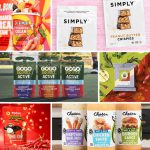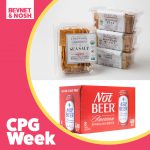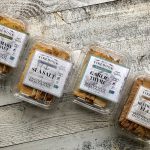Something Gud’s Jay Henderson: Working with Local Grocery Delivery
Entrepreneurs who understand how a small-scale grocery service works will understand many of the demands and considerations bigger retailers will have when it comes to carrying their products — but they also have the benefit of understanding the way these new, web-based grocers function, as well.
In our second series of interviews with Jay Henderson, co-founder of the local grocery delivery service Something Gud, we talked about the operations of a small-scale grocery delivery service, including the amount of products it can carry and how limited storage can affect that.
While the difference between Something Gud and an actual supermarket can be tens of thousands of square feet, the considerations that go into what products the stores will carry are very similar. Thoughts of shelf-stability and product turnover come to mind with limits on shelf space, and the amount of items needing to be kept cold becoming an issue when refrigeration space is constrained.
During the interview, Henderson explained Something Gud’s storage constraints and how that affects interaction with suppliers.
“There definitely is [limitations]. — We have some storage racks, some freezers. We’ve designed our infrastructure and logistics so we can maintain a low inventory and the biggest challenge has been synchronizing with our suppliers and really arranging the relationships in a manner where it is efficient. — We do have limits on the products we carry, which is why we’re really selective — because our space is limited, so every piece of real estate occupied is important to us.”
Watch the rest of Henderson’s interview in its entirety on FBU and stay tuned for the next segment, where we cover how you can get your products carried by the service and what it’s like to work with them once your product is accepted.












